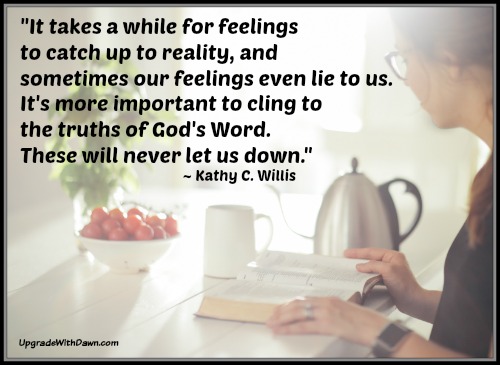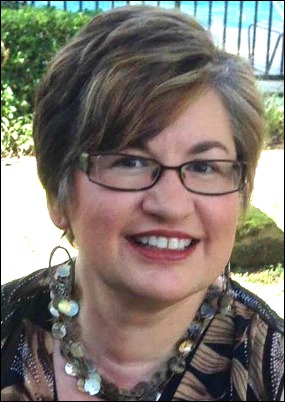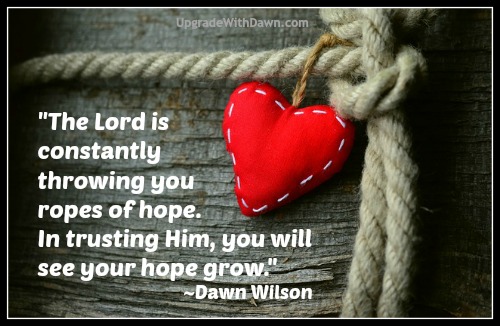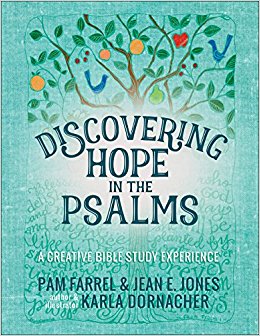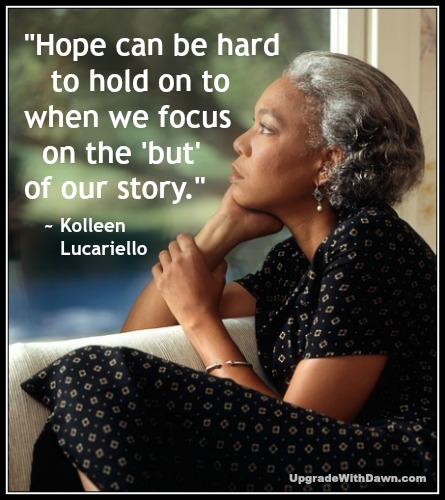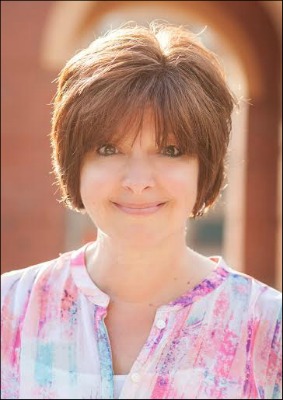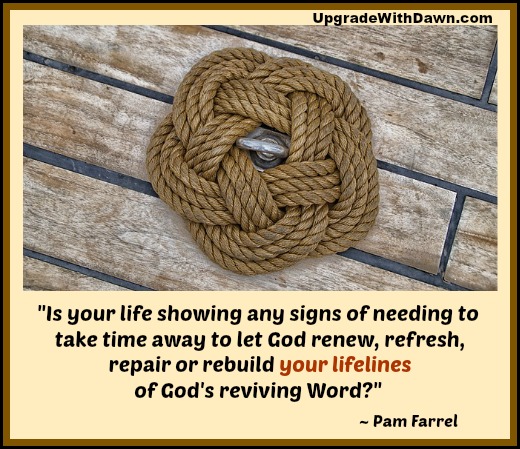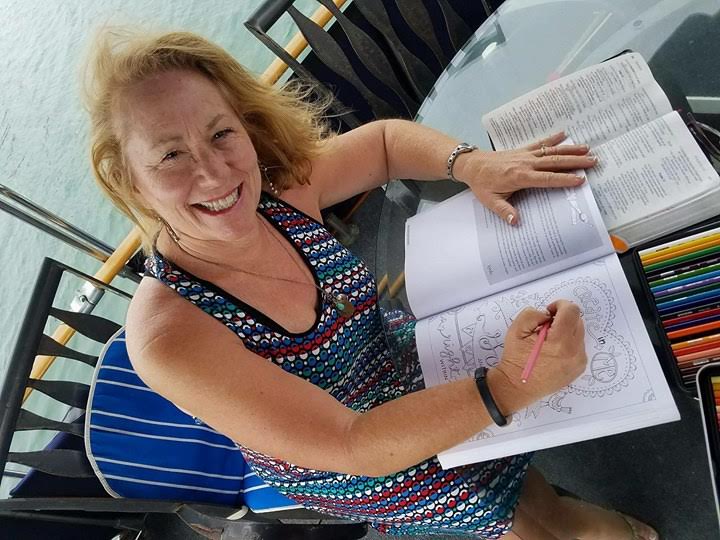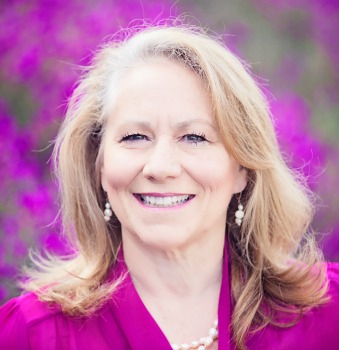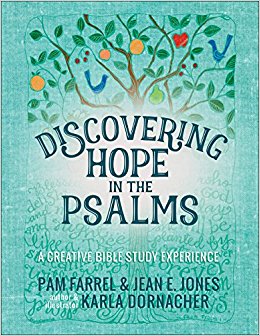Hope for the Hurting at Easter
In this pre-Easter UPGRADE, Dawn acknowledges the pain of those who hurt during this celebratory season, but points back to the purpose, promise and power of the resurrection.
"My daddy died near Easter, years ago," Dawn says. "It was a deeply painful time for me, but also a time of great hope."
During those days I chose to breathe out the pain and breath in the presence of God. It's the only way I felt I could survive the great loss.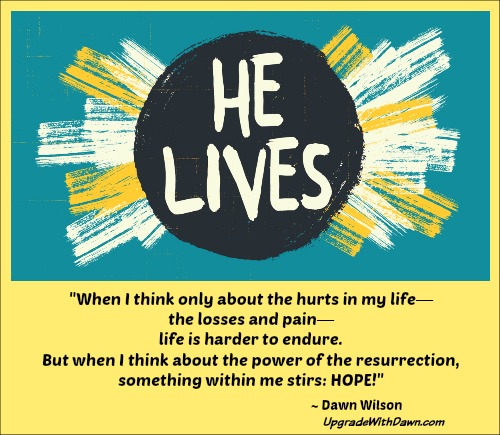
I remember sitting in church that Easter, weeping over Daddy's passing, but then weeping with joy as we celebrated the risen Savior. It was bittersweet on so many levels.
I've since thought about those I know who hurt during many holidays.
- Those who lost their income at Christmas.
- Those who lost their home to fire at Thanksgiving.
- Those who recalled their family losses on Mother's Day and Father's Day.
- Those who lost their health with a sudden "diagnosis" at any time of year when others are celebrating.
So much pain.
But the key words there are "lost" and "losses." Yes, losing people and things we love is painful, but the bigger picture for the Christian is the purpose, promise and power of the Lord's resurrection and how that can and should impact our lives.
1. The Purpose of the Resurrection
I have to admit, my first reaction to a friend who shared truth with me when my Daddy died was to want to choke her! "Just remember what Jesus did; we have victory over all those ugly emotions now," she said.
How insensitive, I thought.
But after I calmed down, I knew she was—at the root of truth—correct.
It was normal to grieve. I'd lost my dear daddy! But it was also right to take my raw emotions to Jesus—my risen Savior—who understood everything about me and my circumstances.
- He came to reach out to us in our pain and separation from God.
- He came to die for our sin and reconcile us to God.
- He came to live a perfect life as an example of righteousness.
- And in His resurrection, He came to conquer the effects of every evil, every false thing, every painful thing that would touch our lives.
The simple truth of Easter is—Jesus died, was buried and rose again (1 Corinthians 15:3-4). But there was so much more in God's purpose for the resurrection.
- The purpose of the resurrection was to show the immense power of God. He is absolutely sovereign over life and death. Only the awesome Creator of life can resurrect life after death.
- The purpose of the resurrection was also to show us who Jesus claimed to be. Because He is truly the Son of God—the long-awaited Messiah—His resurrection authenticated His ministry and the "sign of Jonah" (Matthew 16:1-4). It proved He was God's "Holy One" who would never experience "corruption" (Psalm 16:10; Acts 13:32-37).
- The purpose of the resurrection was to forgive us and set us free from every sin (Acts 13:38-39). He can only set us free because He actually did what He said He would do—rise from the dead (Acts 17:2-3; Mark 8:31; 9:31; 10:34).
We can rest—even in times of frustration, confusion or pain—in God's great picture purpose for the resurrection of Christ.
2. The Promise of the Resurrection
The promise of the resurrection is that God would indeed reverse the ugliness of sin and death and give us victory over the grave—there remains no "sting" in death (1 Corinthians 15:54-55). He is indeed the resurrection and the life (John 11:25).
The promise is that because He lives, we too shall live (John 14:19). He is "the firstfruits of those who have fallen asleep" (1 Corinthians 15:20).
Though we hurt when loved ones pass away, we can have confidence that we will once again see and recognize all our loved ones who have died in Christ.
Why? We will see Jesus, be raised from the dead and instantly be present with the Lord (Titus 2:13; 1 Corinthians 15:12-57). This togetherness is suggested by the events in the "rapture" of the Church (1 Thessalonians 4:17).
And we can believe that the God who loves us and is faithful is working for our good and His glory.
Any loss on earth is meant to be overshadowed by our Father's great lovingkindness now and in heaven.
3. The Power of the Resurrection
Because Jesus rose from the dead and sits at the right hand of the Father (Hebrews 10:12), we get to experience the power of His resurrection.
We are to experience that power now, not just in eternity in heaven.
- We will find power as we respond to God's grace. As we repent of our sins and confess them, embracing God's forgiveness and grace. (Ephesians 2:4-5; Titus 3:4-7; 2 Corinthians 12:9)
- We will find power as we exchange the emptiness of "religion" for a dynamic relationship with the Lord through faith. (Romans 4:4-5; 11:6)
- We will find power as we serve the Lord. 1 Corinthians 15:58 says, "Therefore, my dear brothers and sisters, stand firm. Let nothing move you. Always give yourself fully to the work of the Lord, because you know that your labor in the Lord is not in vain." This is true because it is God who gives us the "victory" through His Son (v. 57).
- We will find power as we begin to embrace eternal priorities. (Matthew 6:33)
- We will find power as we learn to die to our selfish desires and agendas. (Romans 12:1-2)
- We will find power as we anticipate God working on our behalf in ways we cannot imagine, as we surrender to and trust Him. (Proverbs 3:5-6)
- And we will find power as we remember God will give us new bodies (1 Thessalonians 4:13-18) and make all things new (Isaiah 43:18-19; 65:17; Revelation 21:5; Ephesians 2:15; 4:24; Hebrews 8:13).
When I think only about the hurts in my life—the losses and pain—life is harder to endure. But when I think about the power of the resurrection, something within me stirs: HOPE!
The power of the resurrection is our hope in God who raised His Son to new life—the same God who desires to raise us and our loved ones in Christ to new life as well.
He is the same great God who will restore all that is broken and bless us with blessings beyond our imagination. (Ephesians 1:3-14; 1 Corinthians 2:9)
That is the hope for the hurting at Easter.
Are you hurting today? How can a more intentional focus on the purpose, promise and power of Jesus' resurrection help you with your struggles?
Dawn Wilson, founder and President of Heart Choices Today, is a speaker and author,  and the creator the blog, Upgrade with Dawn. She is a contracted researcher/reviewer for Revive Our Hearts and a writer at Crosswalk.com. She and her husband Bob live in Southern California and have two grown, married sons, three granddaughters and a rascally maltipoo, Roscoe.
and the creator the blog, Upgrade with Dawn. She is a contracted researcher/reviewer for Revive Our Hearts and a writer at Crosswalk.com. She and her husband Bob live in Southern California and have two grown, married sons, three granddaughters and a rascally maltipoo, Roscoe.
Graphic vector adapted, courtesy of MKencad at Lightstock.
 Post a Comment → Posted on
Post a Comment → Posted on  Wednesday, April 17, 2019 at 7:20PM
Wednesday, April 17, 2019 at 7:20PM  Dawn Wilson,
Dawn Wilson,  Easter,
Easter,  Easter Sunday,
Easter Sunday,  Hope,
Hope,  Hurting at Easter,
Hurting at Easter,  Resurrection,
Resurrection,  Resurrection Day,
Resurrection Day,  Resurrection Power,
Resurrection Power,  Upgrade with Dawn,
Upgrade with Dawn,  Victory Upgrade Your Life
Victory Upgrade Your Life  Easter,
Easter,  Grief,
Grief,  Trials
Trials 




